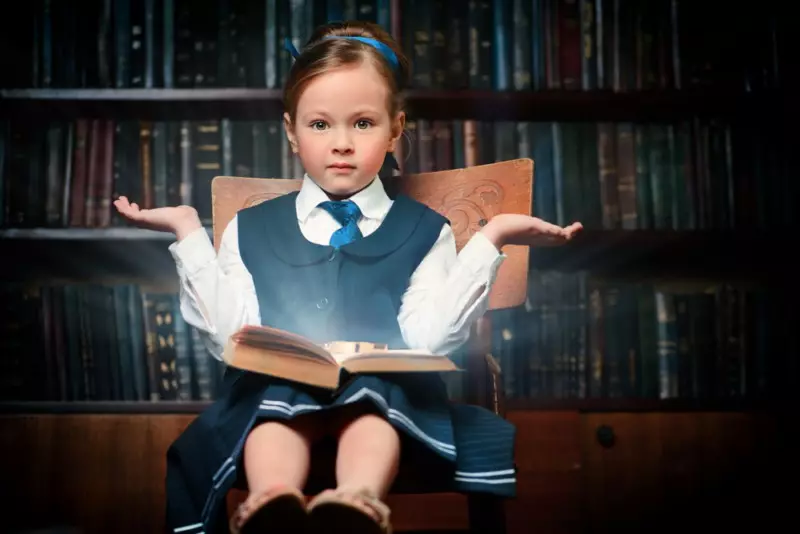Personal borders are a clear understanding of what is yours, and what is someone else, as you can, but it is impossible, what appropriate with another person that is not. This is awareness of yourself with a separate person.
Personal boundaries are something that most of the heroes and heroines of old and modern fairy tales are not. No - because the boundaries are constantly broken, there is no personal integrity as such.
The more valuable to those rare fairy tales, where the heroines and heroes can clearly and clearly defend their borders.

"Eagle and Sheep" Donald Bisset
The fairy tale that all moms must read by their daughters. And all the dad to your sons.The eagle returned and sat down at the table.
- Do you want a piece of roasted bread, cute sheep? - asked Mary.
"No, thanks," she answered the sheep, remembering that Mary whispered her. "Perhaps I would have a better eagle."
What does the fairy tale teach?
Adults: polite and efficiently condescelling for children, without aggression to a child-offefficer.
Children offended: do not be afraid and not get lost when they are attacked.
Non-apartments: to understand that the person feels, whom they want to eat, and also the fact that impunity is not eternal.
What is the difference between "eagle and sheep" from other fairy tales, where are offenders and deceivers, get the same on the same place? For example, from the Belarusian fairy tale "Fox and Teterev" and Russian "Fox and Zhuravl"?
The fact that in these fairy tales of Lisa is a manipulator, and even when she wants to eat Tether, she is chittitis, it does not attack directly to Tether. And answer her relatively simple. And it is easier to survive than the direct aggression of an eagle from the Bissset's fairy tale.
The eagle takes on the personal integrity of the sheep and deprives her personal entity - he talks about her as a food in the third face, with it. Such aggression destroys, and the one to whom it is directed - needs to be protected. Mary behaves very cleverly. She does not just put an eagle in place, she gives the word sheep himself, thereby returning her subjectivity.
"Momens and pencil" Vladimir Suteev
In the context of Tales of Sheyev, it is rather a fairy tale about the smelter. But, in fact, she is about the fight against the one who wants to destroy you.
And the mouse hurts a pencil.
- Oh! .. - said the pencil. - Then let me draw something for the last time, and then do what you want.
What does the fairy tale teach?
Bey for your salvation, how can you.
Do not lose their composure and save when you threaten danger. And if you want to eat the other, remember that you can eat you.
"About the small piglet plukha" Inga Ballode, Irina Rumyantseva
Fuck - the youngest in the family piglets. And, like all children, periodically falls into different stories. And the history is not magical, but quite vital.- Tell me, respectable Doldon, how many days are you still your progress?
The goat answered irritably:
- I will stay with you for a long time, because I like it here! Hearing it, the piglets were completely upset.
What does the fairy tale teach?
In life, anything happens, you are not to blame for the fact that I got into a difficult situation. But you can always count on the support and understanding of the family and to the rescue of adults.
"Earrows" in the processing of Sofia Mogilev, "Chicken-Flory" Alexey Garnich
And other fairy tales, where someone refuses to help someone, and then claim to dinner, but he does not give him - he did not work. Initially, these moral tales wrote like fairy tales about lazy people. But essentially they are about respect for their work.
"All of you," they could hear slightly.
- What did you do?
What to say in response? And nothing to say. It began to twist and turn it out from behind the table, and the cockerel does not hold them.
What does the fairy tale teach?
Feel free to demand respect for your work.
You are not obliged to share the results of your work with anyone.
Feel free to rely conform to those who do not respect you.
Do not count that those whom you do not respect will be kind to you.
"Princess in Paper Bag" Robert Mans
In this book everything is clear and all direct text. Does her daughter asks the book about the princesses? This is what it is necessary.
He looked at his savior, frowned and said:
- Well, the view of you, Elsa! It smells like Gari, you are not combed and some paper bag will be put on you. Be so kind, come back when you look like a princess.
"My dear Ronald," Elsa replied to him, "Lavend smells from you, your hair is perfectly combed, and the dress is great. You look like a real prince, but in fact you are just nothing, and I will never marry you!
What does the fairy tale teach?
Appreciate yourself.
Put nuts into place.
Without a doubt, to part with those who are more important than the appearance, and not you yourself (you yourself).
Respect people and their actions as such.
Being ready for the fact that if people are not important to you, but their appearance, you can be unnecessary.
Illustration: shutterstock
